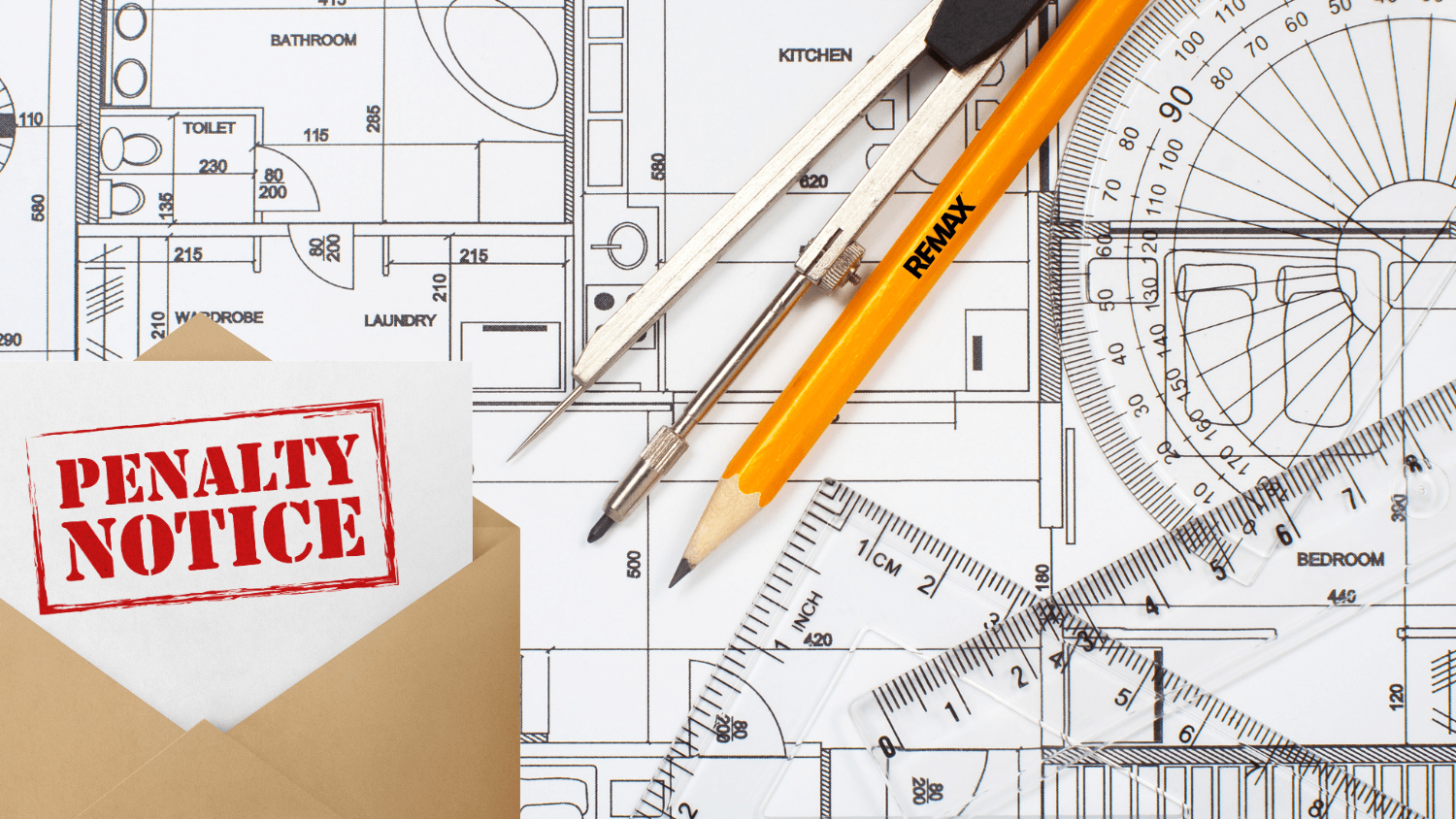Bureaucracy is a nightmare, and no more so than when it comes to getting building plans approved. We’ve all heard our friends’ nightmare stories of the length of time it took to get plans approved, regardless of whether it was a new granny cottage or an extension. While they probably also complained about the fact that the delay cost them in time and materials, those costs would likely have been far higher if they’d skipped the approval process.
In this article, we’ll look at why getting plans approved matters and the potential risks associated with not biting the bureaucratic bullet. Whether you're planning alterations or eyeing a “bargain” property, unapproved building work can expose you to serious legal, financial and compliance risks. From demolition orders to costly delays, the potential consequences are real and usually totally underestimated.
Legal Framework: What the Law Says
In terms of the National Building Regulations and Building Standards Act 103 of 1977 (NBRBSA), any building work must be approved by the municipality, especially new structures, extensions, and changes in land-use. There is, however, a distinction between major and minor building work when this may not apply. That said, as with most things, it’s best to be safe rather than sorry and to check with your municipality before taking the plunge and building that pool in time for summer.
In addition, building work must also comply with the South African National Standard (SANS) 10400, which sets out the technical requirements for safety, structural integrity, and, increasingly, energy efficiency. With South Africa’s historical electricity supply challenges and global warming, municipalities are paying more and more attention to energy efficiency in new builds.
But that’s not all
- Heritage and historical considerations
If you live in (or buy) a heritage building and/or in an area with a historical overlay, you will have additional considerations, including approval from your regional heritage body.
- Estate or body corporate restrictions
In estates or sectional title schemes, architectural guidelines and homeowners’ association (HOA) rules apply – in addition to municipal regulations. Mr Pillay learnt this the hard way when the HOA of the estate in which he lived applied for – and the Gauteng High Court granted – an order to demolish a pergola because it contravened the estate’s architectural guidelines
Here’s a handy checklist if you’re living (or buying) in an estate and considering an addition or renovation:
-
-
- Confirm, in writing, from the HOA that all structures on the property were formally approved by the estate’s architectural committee.
- Check out the estate rules and penalties as some HOAs are entitled to either impose fines or demand demolition (or both) if building work is non-compliant.
- Ask your estate agent, the HOA or managing agent if there are any unresolved disputes or outstanding litigation relating to building work on the property.
- Understand the HOA articles of association and/or rules: they should include an appeal process. Sometimes, working with the system and appealing could get you retrospective approval for the building or alterations. But, as with all things in life, there is no guarantee.
-
- Zoning and title deed restrictions
Your title deed is another source of information about what you may (and may not) do on your property. There are key property restrictions in SA that can impact buyers and homeowners, so be sure to read up on it before commencing any work.
- Voetstoots – you “inherit” a problem with the property
In South Africa, properties are often sold as is or “voetstoots”. While this generally applies to latent and patent defects, it also applies if you discover that the alterations to your new home do not have approved plans. Unlike defects, where you do have recourse, this is not the case with unapproved building work: this becomes your problem.
Don’t learn the hard way: ask for permission, not forgiveness
You might think that the municipality will never come around knocking to find out whether you have planning approval — but never underestimate the power of a disgruntled neighbour. To provide a useful example, there was once a property owner in the Eastern Cape seaside town of Kenton-on-See who had plans for an additional structure on his property and then deviated from those plans – without permission. In this case, long and protracted over 12 years, the owner’s neighbours reported the illegal building to the local municipality: he had not consulted them as is required, and it obstructed their sea and river views. Ultimately, the matter ended up in the South African Supreme Court of Appeal, and led to the homeowner demolishing his luxury home.
In another case where neighbours objected to the building of an eight-unit apartment block on residential land, the Gauteng High Court ruled against the owner who had to demolish the property. In this case, again, the property owner lost because there were no approved building plans, the building encroached on the specified building lines and contravened both zoning and title deed restrictions.
The moral to these stories
-
- Even minor deviations from approved plans, especially in estates with strict architectural specifications, can trigger legal action and demolition.
- If it’s built without approval, the building can be legally ordered down, even years later.
In the table below is a comprehensive list of risks associated with buying (or selling) a property with unapproved building work:
| Risk | Potential consequence |
| Demolition | You may have to demolish the building and foot the bill |
| Administrative penalties | You could be fined – potentially hundreds of thousands of Rands |
| Delays in the sale or transfer | Banks could turn down a bond application, and the Deeds Office can either block or delay transfers |
| Voetstoots | Unless you explicitly cover it in the offer to purchase (or other contract), you inherit the risk associated with unapproved building work |
| Insurance | If building work is not approved, insurers could deem the structure unsafe and repudiate a claim |
| Municipal non-compliance | Future planning applications for building, alterations or rezoning could be denied until outstanding issues are resolved |
Before you renovate, sell and/or buy a property: Ensure compliance
We have put together a table of things to do and what to look out for so that you can avoid or manage the risks should you discover that there is unapproved building work on your property:
| Buyers | Renovators |
|
- Ask the seller for a certified copy of the approved building plans - Check that what you see is what you’re getting: ask a home inspector or architect to compare the plans with the building you’re buying - Check the title deed for any zoning or other restrictions - If any of the building work is unapproved, factor the time and cost of getting approval into your planning |
- Submit plans to your local municipality before you start building work - As required, consult your neighbours: they will be asked to comment and can object. Sometimes this is a good place to start - Use a qualified draughtsperson or architect to help with your design and plans - Consult your local municipality or a reputable building contractor to find out whether your building is minor or major building work - Once the building is approved and underway, keep records of approvals and inspections |
When buying a repossessed property, keep in mind that they might come with costly strings attached, and you need a “secret stash” so that you can deal with these unforeseen costs, because:
-
- Approval process costs vary by municipality – one could be more complex and costly than another
- Timelines can stretch from weeks to months, for approval and building
- If building work was unapproved and penalties incurred, these can be retroactively applied
- Approval may result in either rezoning and/or building compliance upgrades
Word to the wise
For sellers
If you know, or discover, through the process of putting your house on the market, that some building work is not included on the approved plans, this could well impact both the asking price and the final price you secure for your property. Buyers may even insist that approved business plans become a condition of the sale.
For everyone
As we always say, property is a complex business, so make use of the professionals and avoid as much drama as possible. Different professionals have important roles to play:
-
- A home inspector or architect will identify unapproved or unsafe buildings or structures
- A conveyancing or transfer attorney will determine whether there are any title deed or zoning restrictions
- An estate agent – not a private seller – in terms of the Consumer Protection Act, is obliged to disclose any known building or other defects on the property. But, keep in mind that an estate agent will only know of the defaults that the seller has disclosed.
If you’re considering buying or selling your property and need advice on where to start, contact your local RE/MAX Office and one of our agents will help.
Have more unanswered questions? Here are some related questions – and answers – that might help…
What if the unapproved structure violates zoning or building regulations? Can it still be approved?
Yes. It’s not guaranteed, but sometimes it is possible to get retroactive approval for an unapproved structure. If you do get retroactive approval, it may come with a financial penalty (fine) and/or costs associated with rezoning or altering the building to comply with building regulations.
How much is the fine for illegal building in South Africa?
The fine for illegal building in South Africa will depend on a number of factors, ranging from the municipality into which it falls, to the value of the property, as well as the details of the unapproved building work.
Is it my responsibility to fix the problem if I bought the house with unapproved plans from a previous owner?
Yes, if the sale is concluded and the property is in your name, and your agreement of sale includes the voetstoots clause, you will be responsible for fixing the problem of unapproved plans. If, however, you have not signed the offer to purchase (OTP) and you discover that there are no approved plans for some of the building, you can make this a condition of the sale.
Disclaimer
The purpose of this article is to provide general information. REMAX SA advises individuals to consult with a qualified legal professional or municipal planning authority. REMAX SA cannot be held responsible for any decisions made based on the content of this article.





